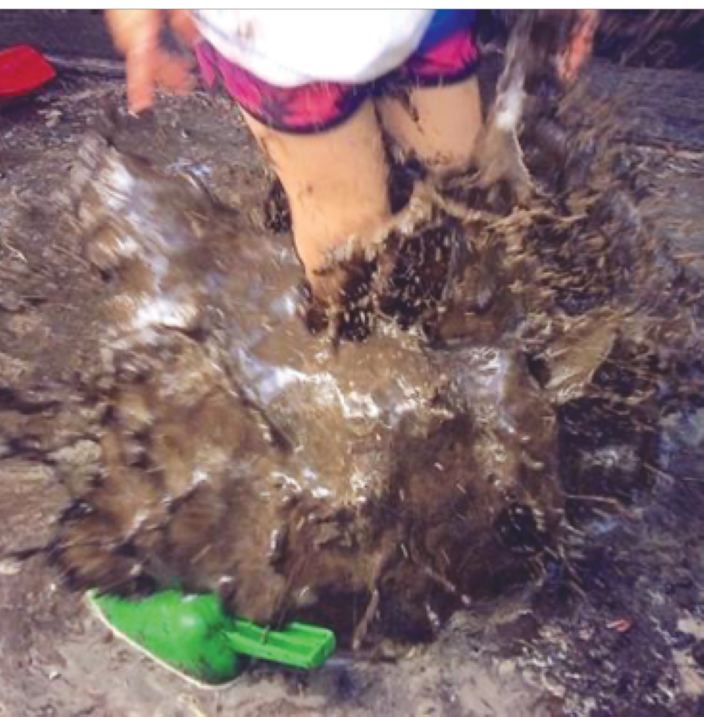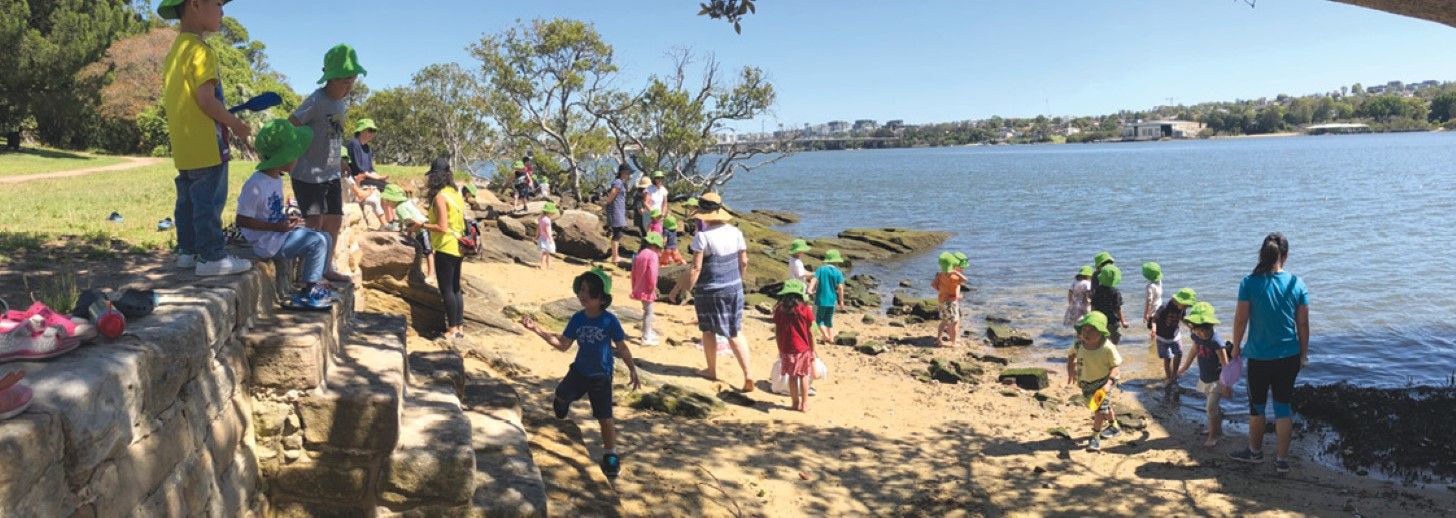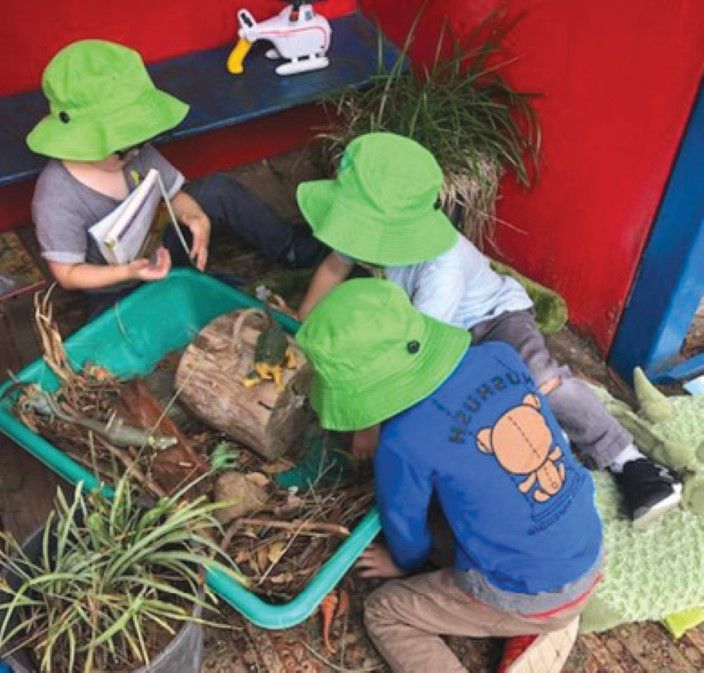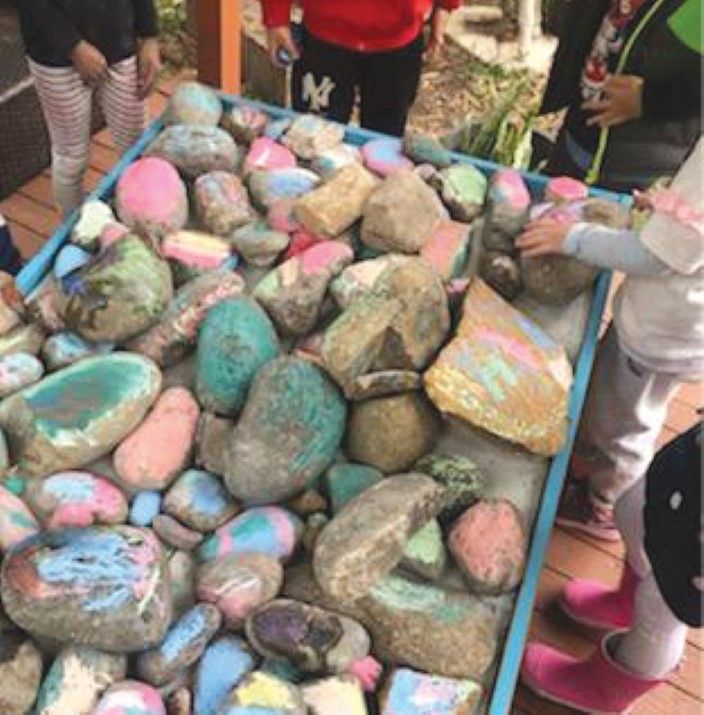
When Marnie Omeragic first started teaching at Concord West Rhodes Preschool 31 years ago, it was mainly surrounded by bush, Sue Osborne writes.





































































































































Nature teaches children to fend for themselves
2022 May Bedrock



When Marnie Omeragic first started teaching at Concord West Rhodes Preschool 31 years ago, it was mainly surrounded by bush, Sue Osborne writes.

The building has stayed the same, but this north-west Sydney suburb has developed into a sea of high-rise apartments, with a large shopping centre and a business park.

Luckily, the preschool backs onto a park run by Canada Bay Council, and Marnie, now the Director, has used this as an inspiration to develop a curriculum with an emphasis on nature-based play and therapy, respect for country and sustainability.
Some years ago, Marnie noticed that many families from the apartment blocks were carrying their children into preschool or wheeling them in prams. Some children “sat with their mouths opened waiting to be fed” and didn’t have the core strength to stay seated on a chair.
She observed many had advanced academic skills, having played numeracy and literacy games on iPads or other technology, but their play skills and self-care abilities were limited.
She decided on a proactive curriculum of nature play, where the children had opportunities to climb trees, balance on logs, clamber on uneven ground, spin, twist, skip and build up their proprioceptive skills.
Rocks, timber, pebbles, plants and other natural items adorn the centre outside and inside – although the recent wet weather has meant some items have had to be removed due to mould.
Nature versus plastics
“You can do occupational therapy in a room full of plastic equipment, or you can build up your skills in a natural environment. We wanted to give the children the chance to do that,” Marnie said.
The long-term staff at the preschool are well versed in the culture of sustainability and incorporating Indigenous perspectives, even when there are no Indigenous staff or families at the centre.
“Our journey with sustainability and Indigenous perspectives has been going on since the Early Years Learning Framework was introduced,” Marnie said.
As well as all the usual practices such as worm farms, a veggie garden, bush tucker garden, composting bins and solar panels, the preschool encourages the children to lose their fear of ‘creepy crawlies’ by having regular visits from animal wranglers with insects and lizards.
“Instead of thinking ‘that is something to be squashed’ we can encourage the children to get curious and ultimately respect the creatures,” Marnie said.
Linking into community events such as Clean Up Australia Day, World Water Day and Harmony Day, the preschool makes the most of the park to its rear, taking the children out to explore, looking at where wastewater goes and picking up rubbish.
Talking about the preschool being on Wangal land, reminding the children that before all the apartments and shops someone else lived there, enhances respect for country, Marnie said.
“Our demographic is very multicultural, but even the children with limited English relate to these Indigenous perspectives.”
A few years ago, Canada Bay Council created a five senses garden, designed to appeal to all ages and abilities, in the park just behind the centre, and the preschool provided feedback on what it should be like.
“That is somewhere the children love to go, it’s like an extension of our grounds. It’s all about intentional nature play for wellbeing and therapy,” Marnie said.